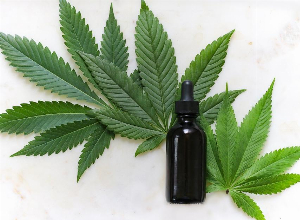Which vitamins should be avoided with multiple sclerosis?
Published May 30, 2023 • By Polina Kochetkova
Multiple Sclerosis is an auto-immune disease affecting millions of people around the world. This condition disturbs the central nervous system, causing various painful symptoms. Today we discuss the compatibility between multiple sclerosis and vitamins. While some supplements can help to ease the pain, others may only elevate the symptoms.
How do different vitamins affect MS? What vitamins should be avoided with MS and why?
Keep reading to find out!

What is Multiple Sclerosis?
Multiple sclerosis is a potentially debilitating condition, affecting the central nervous system. Multiple sclerosis disturbs the immune system by attacking the myelin, the covering that protects nerve fibers. This disease can damage the brain and spinal cord and result in various symptoms, such as issues with vision, arm or leg movement difficulties, balance problems, and more. MS is a chronic disorder that, in some cases, can lead to severe disability.
Some of the symptoms of multiple sclerosis can include:
- Numbness or weakness in one or more limbs
- Tingling electric shock sensations in the neck
- Poor coordination
- Troubles with bowel, bladder, and sexual health
- Difficulty walking or a shaky movement
- Partial or total blindness, usually affecting just one eye at a time, frequently accompanied by pain when moving the eye
- Long-lasting double vision
- Blurred vision
The majority of MS patients experience relapsing-remitting illness course. They go through phases of developing new symptoms or relapsing that take days or weeks to develop and often recover either partially or entirely. After these relapses, there can be months or even years of calm illness remission.
Small changes in body temperature have the potential to temporarily worsen MS symptoms. These are called pseudo-relapses rather than actual illness relapses.
Multiple sclerosis can occur at any age, although it is most frequently diagnosed in individuals in their 20s, 30s, and 40s. Women are 2 to 3 times more likely than men to have multiple sclerosis.
Although there is no cure for MS at the moment, lifestyle changes, medications, and supplements can help to manage the symptoms.
How do different vitamins affect MS?
If you have multiple sclerosis (MS), you might be curious about the potential benefits of taking vitamins, supplements, and herbal remedies. Studies that highlight particular advantages for people with MS are few and the research on this topic is not fully concluded yet.
Whenever you are considering taking supplements, be aware that the FDA doesn't regulate them as strictly as prescription drugs. As a result, you could not be certain of the contents or functionality of the supplements you buy. Additionally, certain vitamins and medications you may be taking don't combine well. It is recommended to consult your doctor before beginning an additional treatment.
Due to a small amount of research, only one vitamin can be medically recommended to take with multiple sclerosis – vitamin D. Several studies imply that those who already have MS may benefit from this supplement. The research suggests that if MS patients take vitamin D, their symptoms might not be as severe as they would be if they didn't. Additionally, fewer symptom occurrences could lead to a higher quality of life. Vitamin D supplementation may also reduce the chance of relapse and new nerve damage.
If you are prone to developing multiple sclerosis, due to family history or lifestyle, taking vitamin D can also be beneficial. According to studies, keeping adequate vitamin D levels may reduce the chance of developing multiple sclerosis. Plenty of research has demonstrated a decreased risk of MS in people who consume greater vitamin D and sun exposure.
However, more research is required to study the connection between vitamin D and MS more profoundly.
Vitamins with less conclusive evidence but potential for managing MS symptoms include:
- Vitamin B1 (thiamine): Vitamin B1 deficit is linked to a number of neurodegenerative diseases, including MS. Thiamine supplementation may potentially decrease MS discomfort.
- Vitamin A: Taking vitamin A may prevent MS patients from developing pathogenic T cells, which could help to manage the symptoms better.
- Vitamin B12: According to research, one of the most common deficiencies among MS patients is vitamin B12 insufficiency. Therefore, taking a vitamin B12 supplement could potentially help to lessen the symptoms.
What vitamins should be avoided with MS?
When living with an auto-immune disease, like multiple sclerosis, it is very important to be careful with any home remedies or supplements, in order to not do any harm or worsen your condition. Certain vitamins like vitamin C and biotin, could be avoided or taken cautiously, due to possible side effects in MS patients.
Vitamin C
Although previously vitamin C was considered beneficial for people with multiple sclerosis, recent studies suggest that this vitamin can cause negative effects and boost the symptoms, due to its role in promoting the Fenton’s reaction. In Fenton's reaction, iron and hydrogen peroxide combine to form the reactive and poisonous hydroxyl radical, which is damaging to human cells. Accordingly, high levels of antioxidants, such as vitamin C, might encourage this harmful reaction and cause inflammation in the body. Low doses (90-120 mg or fewer per day) of vitamin C may be the most reasonable option if it is taken after all. This basically equals one cup of orange juice.
However, other sources provide opposing information on vitamin C’s effects. According to a study conducted in China, vitamin C can improve the synthesis of myelin sheaths and may lessen the symptoms of multiple sclerosis.
Therefore more research is needed to confidently establish the role of this supplement in multiple sclerosis patients’ lives.
Biotin (B7)
Biotin is sometimes suggested for MS management, yet other research shows the opposite action of this vitamin in MS patients. A 2017 study of 43 patients with progressive multiple sclerosis and daily intake of biotin (300 mg per day) over the period of 1 year concluded:
- The 300 mg doses of biotin used daily were safe and well tolerated.
- People with progressive MS did not have consistent improvement after taking daily high doses of biotin for up to a year.
- A third of the patients’ symptoms worsened, perhaps because of their illness.
- Some patients reported worsening of their facial pain, which reduced after stopping the biotin.
A 2020 study also suggests the negative effects of high-dosage biotin on people with multiple sclerosis, advising to avoid this supplement or use it with caution.
Nevertheless, moderate certainty of evidence suggests a possible benefit in favor of high doses of biotin administered for 12 to 15 months in terms in patients with progressive MS.
Thus, further investigation is required to accurately assess the supplement's potential for multiple sclerosis patients.
Take away
Even if vitamins and supplements might seem harmless, in reality, they have the potential to affect your condition both positively and negatively. Therefore, before starting any supplements, it is important to talk to your doctor and learn about your condition’s compatibility with any specific supplement, you might consider taking.
Give it a "Like" and share your thoughts and questions with the community in the comments below!
Take care!
Sources:
Multiple sclerosis, NHS.uk
A review on potential roles of vitamins in incidence, progression, and improvement of multiple sclerosis, Sciencedirect.com
Vitamin D and MS, MSsociety.org.uk
Current Use of Fenton Reaction in Drugs and Food, NIH.gov
High dose biotin as treatment for progressive multiple sclerosis, Msard-journal.com
Safety and efficacy of MD1003 (high-dose biotin) in patients with progressive multiple sclerosis (SPI2): a randomised, double-blind, placebo-controlled, phase 3 trial, Thelancet.com
Vitamin C promotes oligodendrocytes generation and remyelination, Onlinelibrary.wiley.com

 Facebook
Facebook Twitter
Twitter


